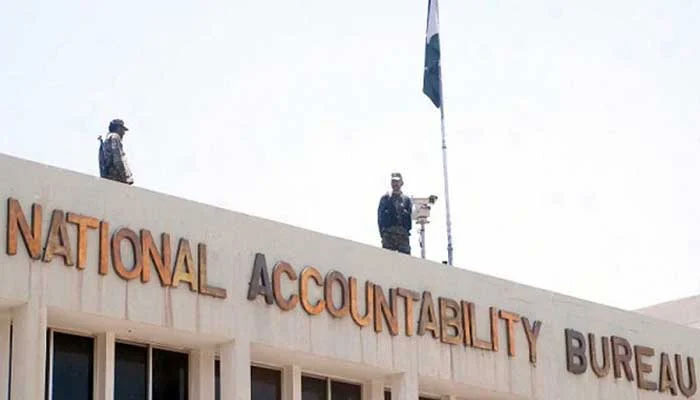NAB’s new protocol to restore bureaucracy’s confidence
Four, a person facing a NAB probe will not be called ‘accused’ but will be addressed as ‘respondent’
ISLAMABAD: NAB is currently finalising some fundamental changes in its operational procedures to ensure that it does not harass any government servant or public office-holder in the future.
At least six major measures are being introduced to save government servants and public office-holders from being maligned in the name of corruption or being dragged into unnecessary inquiries and investigations.
According to informed sources, these steps include: one, that no anonymous complaint against anyone will be entertained. Previously on the basis of anonymous complaints, a large number of government servants and public office-holders faced inquiries, investigations and even arrest.
Two, the complainant of any corruption case against any government servant or public office-holder will now be bound to submit an affidavit that if the complaint proves untrue he/she would be liable to face criminal and legal consequences.
Three, any complaint involving a procedural fault in any government matter or decision, but which does not have any evidence of financial gain, will not be inquired into.
Four, a person facing a NAB probe will not be called ‘accused’ but will be addressed as ‘respondent’.
Five, no name of any respondent and no complaint details will be shared with the media during the complaint verification, inquiry and investigation stages. These details will be made public only when the investigation concludes towards the filing of a reference in the accountability court.
Six, in case of complaints against government servants, committees of senior secretaries at federal and provincial levels will also be consulted.
According to NAB sources, the bureau intends to implement these measures in a few weeks to address the long-standing reservations within the civilian bureaucracy about harassment at the hands of NAB, which has in the past badly hurt the working of the civilian bureaucracy.
NAB has been initiating corruption cases against government servants on the basis of anonymous complaints and without the availability of any evidence. Many respected bureaucrats and secretaries were even arrested for months and years without anything being proven against them.
Such has been the draconian style of NAB’s working that every second secretary was facing one inquiry or the other. In the vast majority of cases, NAB did not prove anything and yet no NAB official was held responsible. This led to the entire civilian bureaucracy being wary of taking even routine decisions.
A few weeks back, Army Chief General Asim Munir in his interaction with senior members of the bureaucracy in Lahore had assured them that they would be protected from unnecessary harassment and therefore should not shy away from taking decisions.
A few days back, NAB Chairman Lt-Gen (r) Nazir Ahmad Butt had also assured the bureaucracy that there would be no media trial of any officer in the future and officers would not be questioned in cases of good faith and public interest. He told the officers: “I will not take any action on anonymous applications in the future. Officers will realize that they are not criminals but defendants”.
-
 Why Prince William Releases Statement On Epstein Scandal Amid Most 'challenging' Diplomatic Trip?
Why Prince William Releases Statement On Epstein Scandal Amid Most 'challenging' Diplomatic Trip? -
 Historic Mental Health Facility Closes Its Doors
Historic Mental Health Facility Closes Its Doors -
 Top 5 Easy Hair Fall Remedies For The Winter
Top 5 Easy Hair Fall Remedies For The Winter -
 Japan Elections: Stock Surges Record High As PM Sanae Takaichi Secures Historic Victory
Japan Elections: Stock Surges Record High As PM Sanae Takaichi Secures Historic Victory -
 Prince William, Kate Middleton Finally Address Epstein Scandal For First Time: 'Deeply Concerned'
Prince William, Kate Middleton Finally Address Epstein Scandal For First Time: 'Deeply Concerned' -
 Kim Kardashian Promised THIS To Lewis Hamilton At The 2026 Super Bowl?
Kim Kardashian Promised THIS To Lewis Hamilton At The 2026 Super Bowl? -
 Andrew Mountbatten-Windsor Throws King Charles A Diplomatic Crisis
Andrew Mountbatten-Windsor Throws King Charles A Diplomatic Crisis -
 Barack Obama Hails Seahawks Super Bowl Win, Calls Defense ‘special’
Barack Obama Hails Seahawks Super Bowl Win, Calls Defense ‘special’ -
 Pregnant Women With Depression Likely To Have Kids With Autism
Pregnant Women With Depression Likely To Have Kids With Autism -
 $44B Sent By Mistake: South Korea Demands Tougher Crypto Regulations
$44B Sent By Mistake: South Korea Demands Tougher Crypto Regulations -
 Lady Gaga Makes Surprising Cameo During Bad Bunny's Super Bowl Performance
Lady Gaga Makes Surprising Cameo During Bad Bunny's Super Bowl Performance -
 Paul Brothers Clash Over Bad Bunny's Super Bowl Performance
Paul Brothers Clash Over Bad Bunny's Super Bowl Performance -
 South Korea: Two Killed As Military Helicopter Crashes During Training
South Korea: Two Killed As Military Helicopter Crashes During Training -
 Elon Musk Unveils SpaceX’s Moon-first Strategy With ‘self Growing Lunar City’
Elon Musk Unveils SpaceX’s Moon-first Strategy With ‘self Growing Lunar City’ -
 Donald Trump Slams Bad Bunny's Super Bowl Performance: 'Absolutely Terrible'
Donald Trump Slams Bad Bunny's Super Bowl Performance: 'Absolutely Terrible' -
 Jake Paul Criticizes Bad Bunny's Super Bowl LX Halftime Show: 'Fake American'
Jake Paul Criticizes Bad Bunny's Super Bowl LX Halftime Show: 'Fake American'




